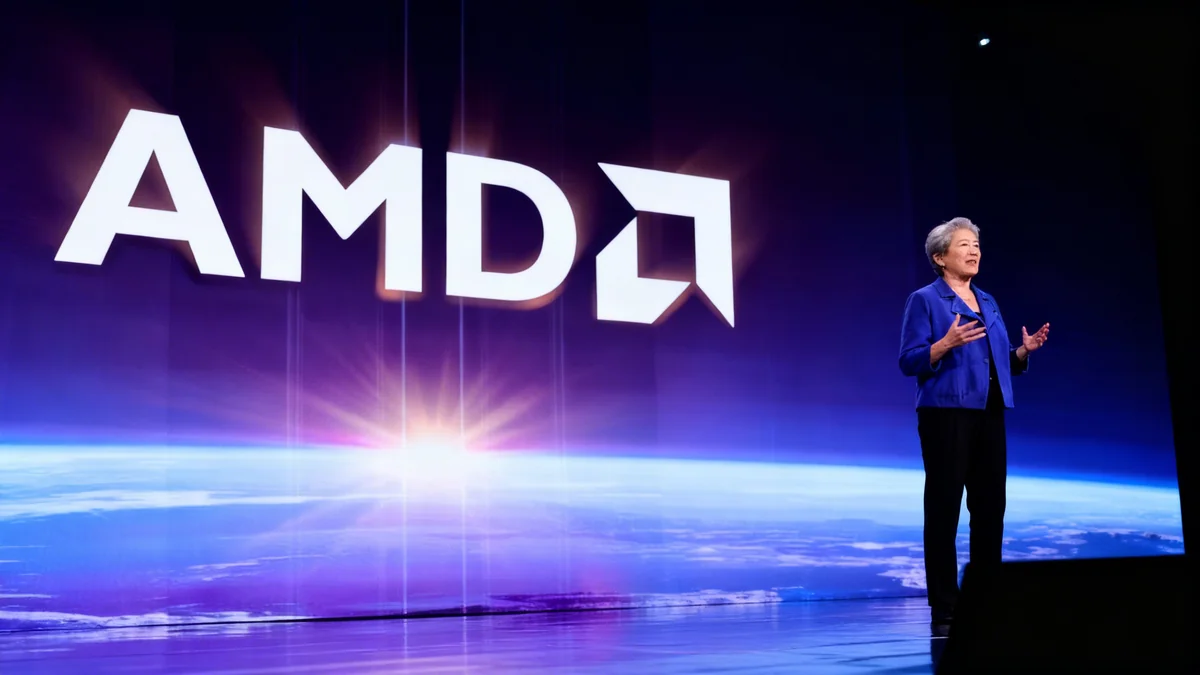The enthusiasm surrounding artificial intelligence is facing a reality check in the stock market. Despite strong reports from major tech companies like AMD and Palantir, the Nasdaq Composite index saw a decline, signaling investor caution. This shift suggests a growing skepticism about the sustainability of current AI valuations.
Wall Street appears fixated on AI, yet even companies at the forefront of this technology are seeing their stock prices fall. This narrow focus is raising concerns among some market observers, who point to potential imbalances between revenue generation and the significant capital investments required for AI development.
Key Takeaways
- Tech stocks, including AI leaders, experienced a downturn despite strong earnings.
- Investors are questioning high valuations in the AI sector.
- Some CEOs believe the market is already undergoing a correction.
- Private equity industry faces consolidation amid demands for higher returns.
- Nvidia expands its footprint in India with a new deep tech investment alliance.
AI Enthusiasm Faces Scrutiny on Wall Street
Recent market activity shows a complex picture for AI-related stocks. Companies like Advanced Micro Devices (AMD) reported demand for their AI chips that exceeded expectations. Similarly, data analytics firm Palantir announced another quarter of robust growth, driven by AI projects.
However, these positive reports did not translate into broad market gains. The Nasdaq, a benchmark for technology stocks, actually moved lower. This indicates that investors are becoming more discerning, even within the highly favored AI sector.
Some CEOs are warning of a market correction, others of an inevitable mismatch between revenues and the massive capital expenditure needed to power AI.
Palantir, often seen as a key player in the AI space, saw its shares drop almost 8% following its earnings announcement. Oracle, another significant tech firm, experienced a nearly 4% decline. Even industry giants like Nvidia and Amazon, central to the AI narrative, faced pullbacks.
Market Snapshot
- Palantir shares fell nearly 8%
- Oracle dropped almost 4%
- SoftBank's market cap decreased by approximately $32 billion
- Japan’s Nikkei 225 dipped below 50,000
- South Korea’s Kospi saw losses of up to 6.16%
Broader Market Signals and Investor Caution
The message from the market appears clear: investors are prioritizing AI above almost everything else, but even AI-focused companies are under intense scrutiny regarding their valuations. This narrow focus is beginning to flash warning signs for some financial experts.
Concerns are rising about a potential disconnect between the ambitious capital expenditures required for AI infrastructure and the actual revenue growth these investments are generating. This imbalance could lead to a market correction, according to some prominent figures in the financial industry.
What is a Market Correction?
A market correction is typically defined as a decline of 10% or more in a stock index, such as the S&P 500 or Nasdaq, from its most recent peak. Corrections are common and can be a healthy part of the market cycle, often leading to opportunities for long-term investors.
Josh Brown, CEO of Ritholtz Wealth Management, stated that the stock market is currently undergoing a correction, even if major indexes have not yet fully reflected it. This view suggests that under the surface, many individual stocks are already experiencing significant declines.
Asian Markets Experience Significant Declines
The cautious sentiment around AI valuations extended to Asian markets, where significant declines were observed. Japan’s Nikkei 225 index dipped below the 50,000 mark. This drop was part of a broader trend as investors moved away from AI-linked stocks across the region.
South Korea’s Kospi index also saw substantial losses, falling as much as 6.16%. Major chip manufacturers like Samsung Electronics and SK Hynix, critical players in the global AI supply chain, posted losses. SoftBank, a key investor in technology, experienced a roughly $32 billion drop in its market capitalization, with shares plunging over 14%.
These movements highlight the global nature of investor sentiment and the rapid re-evaluation of highly valued tech companies, particularly those heavily associated with AI.
Consolidation Looms for Private Equity Industry
The private equity sector is also facing its own set of challenges and is bracing for a wave of consolidation. Joe Bae, co-CEO of KKR & Co, highlighted the crowded nature of the industry, noting that there are more private equity funds in North America than McDonald's franchises.
Private Equity vs. McDonald's
- Approximately 19,000 private equity funds in North America.
- Around 14,000 McDonald’s franchises in the U.S.
This oversaturation is leading to increased pressure on private equity managers to deliver higher returns and demonstrate stronger governance. Investors are becoming more selective, which could force smaller or underperforming funds to merge or exit the market.
Nvidia Deepens Presence in India with Deep Tech Alliance
Amid these market shifts, Nvidia is strategically expanding its global footprint. The U.S. chipmaker has become a founding member of the India Deep Tech Alliance (IDTA), a new initiative aimed at fostering emerging deep tech startups in India. This alliance plans to invest $2 billion in the sector.
Deep tech encompasses companies involved in semiconductors, space technology, artificial intelligence, biotechnology, robotics, and energy. Nvidia will provide training and mentorship to these startups, deepening its engagement in India, which is recognized as the world’s third-largest startup ecosystem.
This move underscores the long-term strategic importance of nurturing AI and related technologies despite short-term market fluctuations. Nvidia’s investment signals confidence in the foundational growth of deep tech innovation.
Democratic Success in U.S. Elections
In other news, Democrats achieved a clean sweep in the three largest contested elections across the U.S. on Tuesday night. This included key races in New Jersey and Virginia, demonstrating strong electoral performance.
In New York, democratic socialist Zohran Mamdani secured a victory, defeating opponents Andrew Cuomo and Republican nominee Curtis Sliwa. These results could influence policy discussions and legislative priorities in the coming period.





